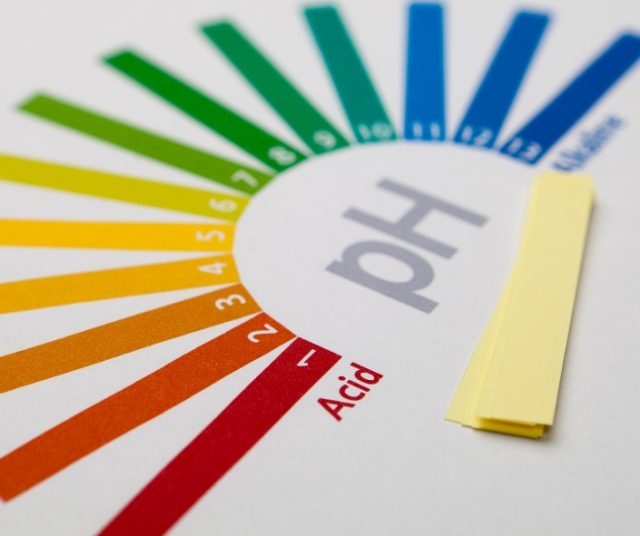Acidosis is a medical condition that occurs when there is excess acid in the body or a decrease in the amount of bicarbonate, which is a substance that helps maintain a proper pH balance in the body. pH is a measure of the acidity or alkalinity of a solution and is measured on a scale of 0 to 14, with 7 being neutral. When the body's pH becomes unbalanced and too acidic, there can be serious health consequences. Acidosis can be caused by a variety of factors, including respiratory problems, metabolic conditions, and kidney disorders. It can also be the result of certain medications or drugs.
Types of Acidosis
There are several types of acidosis, including respiratory acidosis, metabolic acidosis, and mixed acidosis.
Respiratory Acidosis
Respiratory acidosis occurs when the lungs are unable to remove enough carbon dioxide from the body. Carbon dioxide is a gas that is produced when the body breaks down food for energy. If the body can't get rid of enough carbon dioxide, acid levels in the body rise, which can lead to acidosis. This can be caused by a variety of lung problems, including chronic obstructive pulmonary disease (COPD), pulmonary fibrosis, and pneumonia . Symptoms of respiratory acidosis can include shortness of breath, fatigue, confusion, and headaches.
Metabolic acidosis
Metabolic acidosis occurs when the body produces too much acid or cannot get rid of enough acid. This can be caused by a variety of factors, such as uncontrolled diabetes, kidney failure, or excessive alcohol consumption. Symptoms of metabolic acidosis can include rapid breathing, nausea, vomiting, fatigue, confusion, and muscle weakness. If left untreated, metabolic acidosis can be life-threatening.
Mixed Acidosis
Mixed acidosis is a combination of respiratory and metabolic acidosis. It can be caused by a variety of factors, including chronic lung disease and metabolism problems. Symptoms of mixed acidosis can include rapid breathing, fatigue, confusion, nausea, vomiting, and muscle weakness.
Diagnosis of Acidosis
Acidosis can be diagnosed by a doctor using a variety of tests, such as blood tests, urinalysis, and x-rays . Blood work is one of the most common tests used to diagnose acidosis. The test measures the levels of acid and bicarbonate in the blood. If acid levels are too high and bicarbonate levels are too low, it may indicate acidosis. Urinalysis can also be used to diagnose acidosis. The test measures the levels of acid in the urine. If the acid levels are too high, it may indicate the presence of acidosis. X-rays can also be used to diagnose acidosis. A chest x-ray can show if there are lung problems that may be causing the respiratory acidosis.
Acidosis Treatment
Treatment of acidosis depends on the type and cause of the condition. In general, the goal of treatment is to restore normal acid levels in the body.
Respiratory Acidosis Treatment
Treatment of respiratory acidosis focuses on improving lung function and removing carbon dioxide from the body. This may include the administration of oxygen, the use of medications to open the airways, and the removal of any lung obstruction.
Metabolic Acidosis Treatment
Treatment of metabolic acidosis focuses on addressing the underlying cause of the condition. For example, if metabolic acidosis is caused by uncontrolled diabetes, treatment may include regulating blood sugar levels through dietary changes and medications.
Treatment of Mixed Acidosis
Treatment of mixed acidosis focuses on addressing both the respiratory and metabolic cause of the condition. This may include administration of oxygen , use of medications to improve lung function, and treatment of the underlying cause of metabolic acidosis.
Acidosis Prevention
Prevention of acidosis depends on the cause of the condition. In general, it is important to maintain a healthy lifestyle and follow medical advice to prevent any underlying conditions that could lead to acidosis.
Here are some tips to prevent acidosis:
- Maintain a healthy and balanced diet : A healthy and balanced diet can help prevent metabolic acidosis. This includes eating nutrient-dense foods that are low in processed fats and sugars.
- Manage chronic conditions : Chronic conditions such as diabetes and kidney failure can lead to metabolic acidosis. It is important to manage these conditions through dietary changes, medication, and regular medical follow-up.
- Avoid Excessive Alcohol Consumption : Excessive alcohol consumption can lead to metabolic acidosis. It is important to limit your alcohol intake and seek help if you are having trouble controlling your drinking.
Follow medical recommendations : If you have a medical condition that can lead to acidosis, it is important to follow medical recommendations to manage the condition and prevent the onset of acidosis.
It's important to understand the different types of acidosis , how the condition is diagnosed and treated, and how to prevent its onset through a healthy lifestyle and regular medical follow-up. If acidosis is suspected, it is important to seek immediate medical attention.
